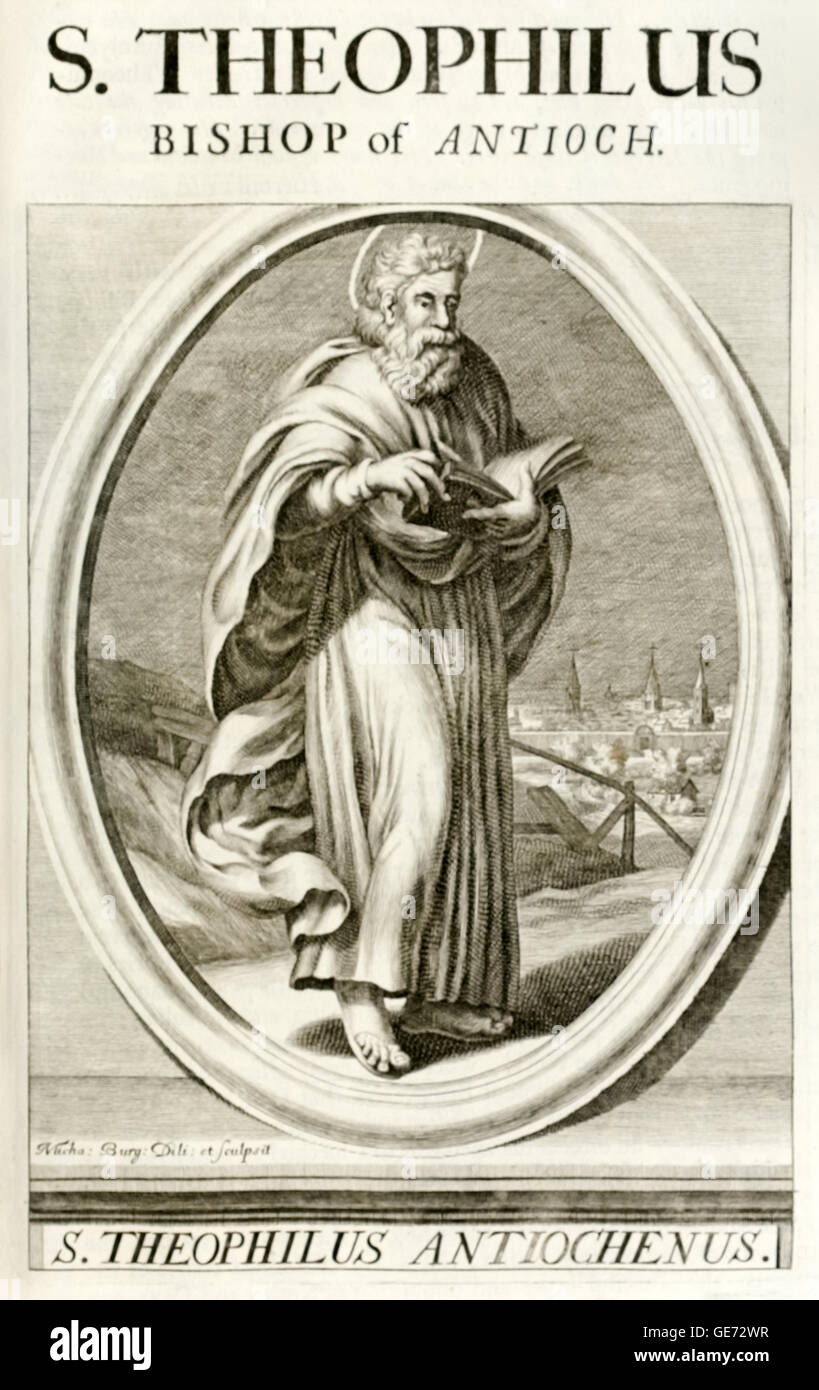
Have you ever found yourself pondering the influential figures who played pivotal roles in the formation and development of Christianity? One such remarkable individual is **Theophilus of Antioch**, whose life and contributions continue to hold significance even in contemporary discussions about faith and theology. Theophilus was born in the region near the Tigris and Euphrates rivers, an area that is part of modern-day Iraq. He rose to prominence as the sixth bishop of Antioch, a position that placed him at the heart of early Christian thought and practice. In the 2nd century, he emerged as a notable Christian Apologist, defending the faith against various philosophical and religious challenges of his time. His writings not only articulate the beliefs of early Christians but also engage with the broader intellectual currents of the era. Join me as we explore the intriguing life and legacy of Theophilus, a figure whose insights and arguments continue to resonate throughout the history of Christianity!
Early Life and Education

Where It All Began
Theophilus was born approximately in the year 120 AD, in a region that was a melting pot of cultural and religious diversity. Growing up in the vicinity of the Tigris and Euphrates rivers, he was immersed in a rich tapestry of various philosophies, traditions, and belief systems that shaped the world around him. His early life was marked by exposure to different ideas and practices, but it was his education in the Greek tradition that played a pivotal role in molding his intellectual framework. This education equipped him with the rhetorical skills and philosophical insights that would later become hallmarks of his apologetic writings, allowing him to articulate and defend his beliefs with clarity and conviction.
A Late Conversion to Christianity
Interestingly, Theophilus did not embrace Christianity until he reached adulthood. His journey to faith was not a straightforward path; rather, it was marked by significant contemplation and exploration of various religious beliefs. Imagine the internal struggle he must have faced as he weighed the merits and truths of different faiths before ultimately finding his true calling in Christianity! By around 170 AD, after much deliberation and soul-searching, he was elected as the bishop of Antioch. This esteemed position not only affirmed his commitment to his newfound faith but also provided him with a platform to influence and guide many others on their spiritual journeys, solidifying his legacy in the early Christian church.
Theophilus as Bishop of Antioch

The Role of a Bishop
Theophilus, serving as the bishop of Antioch, held a position of immense significance and responsibility within the early Christian community. His role extended far beyond that of a mere spiritual leader; he was a pivotal figure in the community, tasked with the vital mission of guiding the faithful through a tumultuous period in history. During a time when Christianity was still in its infancy and facing numerous challenges, Theophilus was responsible for addressing various heresies that threatened the integrity of the faith. Additionally, he had to defend Christianity against critics and skeptics who sought to undermine its teachings. One can only imagine the immense pressure and weight that accompanied such a role, especially in an era when the beliefs and practices of Christians were often met with hostility and misunderstanding.
His Apologetic Works
Theophilus is perhaps best recognized for his remarkable apologetic writings, with his most notable work being a series of three tracts collectively titled To Autolycus. These writings were crafted in response to a pagan friend who openly mocked and ridiculed Christianity, presenting Theophilus with a formidable challenge. In the face of such skepticism, he employed his exceptional rhetorical skills to passionately and eloquently defend the Christian faith. His ability to articulate the core tenets of Christianity in a compelling manner not only showcased his deep understanding of the faith but also highlighted his commitment to fostering dialogue between differing belief systems.
Understanding “To Autolycus”
In the tracts of To Autolycus, Theophilus delves into a variety of profound topics, including the nature of God, the creation of the world, and the pivotal significance of Jesus Christ in the Christian narrative. His arguments were not limited to theological discourse; they also ventured into philosophical territory, aiming to resonate with both Christians and pagans alike. It was as if Theophilus sought to create a bridge between two distinct worlds through his eloquent words, fostering understanding and encouraging respectful dialogue. His writings serve as a testament to the intellectual rigor and passionate defense of the Christian faith during a time of uncertainty and challenge.
The Literary Style of Theophilus

A Rhetorical Approach
Theophilus’s writing style was marked by a distinctive rhetorical flair that set him apart from many of his contemporaries. He skillfully employed a variety of literary techniques, such as analogies, metaphors, and vivid imagery, to engage his audience and make complex theological concepts more accessible to the average reader. His ability to distill intricate ideas into relatable terms allowed him to connect with a broader audience, inviting them into deeper contemplation of their faith. Have you ever encountered a piece of writing that resonated so profoundly that it felt like a light bulb moment? That’s the enchanting power of effective writing, and Theophilus mastered it.
Impact on Early Christian Thought
Initially, Theophilus’s works were met with enthusiasm and appreciation among early Christian theologians. They valued his talent for articulating the tenets of the faith in a manner that was both compelling and thought-provoking. His writings contributed significantly to the development of early Christian thought, providing clarity and insight during a formative period. However, as the centuries progressed, particularly by the 5th century, his works began to fade into relative obscurity. This decline raises an intriguing question: what factors contributed to this shift? Perhaps the emergence of new theological debates and the rise of different theological figures overshadowed his contributions, leading to a gradual loss of recognition for his influential ideas.
Theophilus’s Legacy

A Forgotten Figure?
Despite being a significant figure in early Christianity, Theophilus’s legacy is often overlooked. His contributions to apologetics laid the groundwork for future theologians. It’s a bit like planting a seed that grows into a mighty tree, even if the original gardener is forgotten.
Modern Relevance
Today, Theophilus’s works are being rediscovered by scholars and enthusiasts alike. His approach to defending the faith is still relevant in our contemporary world, where skepticism often challenges belief. Isn’t it fascinating how the past can inform the present?
Table of Key Events in Theophilus’s Life

| Year | Event |
|---|---|
| 120 AD | Birth near the Tigris and Euphrates rivers |
| 170 AD | Elected bishop of Antioch |
| 180 AD | Died in Antioch |

In conclusion, Theophilus of Antioch was more than just a bishop; he was a pioneer in the field of Christian apologetics. His journey from a pagan background to a defender of the faith is inspiring. While his works may have faded from mainstream attention, their essence continues to inspire modern believers. So, the next time you ponder early Christian history, remember Theophilus and his remarkable contributions!

